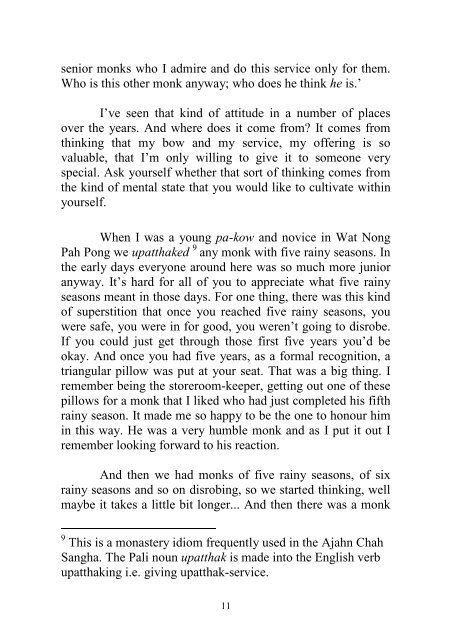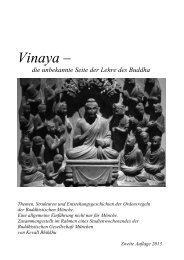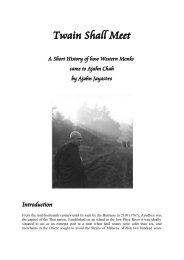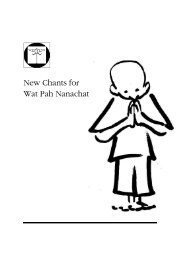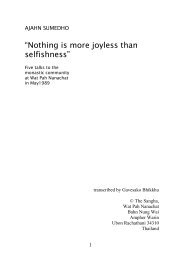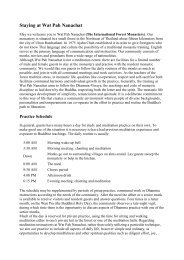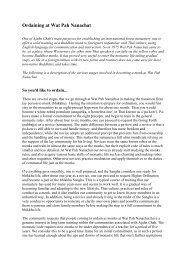Khanti - Wat Pah Nanachat
Khanti - Wat Pah Nanachat
Khanti - Wat Pah Nanachat
Create successful ePaper yourself
Turn your PDF publications into a flip-book with our unique Google optimized e-Paper software.
senior monks who I admire and do this service only for them.<br />
Who is this other monk anyway; who does he think he is.’<br />
I’ve seen that kind of attitude in a number of places<br />
over the years. And where does it come from? It comes from<br />
thinking that my bow and my service, my offering is so<br />
valuable, that I’m only willing to give it to someone very<br />
special. Ask yourself whether that sort of thinking comes from<br />
the kind of mental state that you would like to cultivate within<br />
yourself.<br />
When I was a young pa-kow and novice in <strong>Wat</strong> Nong<br />
<strong>Pah</strong> Pong we upatthaked 9 any monk with five rainy seasons. In<br />
the early days everyone around here was so much more junior<br />
anyway. It’s hard for all of you to appreciate what five rainy<br />
seasons meant in those days. For one thing, there was this kind<br />
of superstition that once you reached five rainy seasons, you<br />
were safe, you were in for good, you weren’t going to disrobe.<br />
If you could just get through those first five years you’d be<br />
okay. And once you had five years, as a formal recognition, a<br />
triangular pillow was put at your seat. That was a big thing. I<br />
remember being the storeroom-keeper, getting out one of these<br />
pillows for a monk that I liked who had just completed his fifth<br />
rainy season. It made me so happy to be the one to honour him<br />
in this way. He was a very humble monk and as I put it out I<br />
remember looking forward to his reaction.<br />
And then we had monks of five rainy seasons, of six<br />
rainy seasons and so on disrobing, so we started thinking, well<br />
maybe it takes a little bit longer... And then there was a monk<br />
9 This is a monastery idiom frequently used in the Ajahn Chah<br />
Sangha. The Pali noun upatthak is made into the English verb<br />
upatthaking i.e. giving upatthak-service.<br />
11


